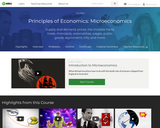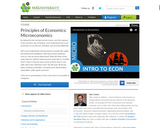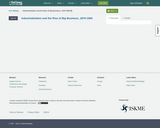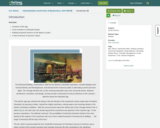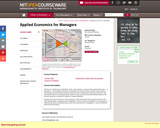
Develops facility with concepts, language, and analytical tools of economics. Covers microeconomics, macroeconomics, and international trade and payments. Emphasizes integration of theory, data, and judgment in the analysis of corporate decisions and public policy, and in the assessment of changing US and international business environments. Restricted to Sloan Fellows. The fact of scarcity forces individuals, firms, and societies to choose among alternative uses -- or allocations -- of its limited resources. Accordingly, the first part of this summer course seeks to understand how economists model the choice process of individual consumers and firms, and how markets work to coordinate these choices. It also examines how well markets perform this function using the economist's criterion of market efficiency. Overall, this course focuses on microeconomics, with some topics from macroeconomics and international trade. It emphasizes the integration of theory, data, and judgment in the analysis of corporate decisions and public policy, and in the assessment of changing U.S. and international business environments.
- Subject:
- Business and Communication
- Economics
- Finance
- Management
- Social Science
- Material Type:
- Full Course
- Provider:
- MIT
- Provider Set:
- MIT OpenCourseWare
- Author:
- Richards, Daniel
- Date Added:
- 01/01/2004
